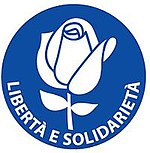
The Union of the Centre, whose complete name is Union of Christian and Centre Democrats, is a Christian-democratic political party in Italy. Lorenzo Cesa is the party's current secretary; Pier Ferdinando Casini was for years the most recognisable figure and de facto leader of the party, before eventually distancing from it in 2016. The UdC is a member of the European People's Party (EPP) and the Centrist Democrat International (CDI), of which Casini was president from 2004 to 2015.
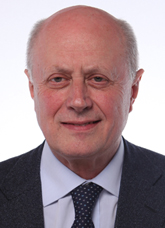
Bruno Tabacci is an Italian politician and member of the Chamber of Deputies. He is the president of the Democratic Centre and member of More Europe. In the past he was member of the Christian Democracy and served as President of the Lombardy region from 1987 to 1989.

The People of Freedom was a centre-right political party in Italy.
Popular Italy, whose complete name is Popular Italy – Movement for Europe is a Christian-democratic political party in Italy, which used to be a faction within the Democratic Party. Its leading members were Lino Duilio, Gerardo Bianco and Alberto Monticone, all three MPs elected for Democracy is Freedom – The Daisy. They were the most sceptical group of that party about the merger with Democrats of the Left to form the Democratic Party, and they were cold supporters of it. Although being members of the Italian People's Party when this party decided to join The Olive Tree, they were very proud of their Christian-democratic identity and never left the European People's Party.
The Liberal Populars were a short-lived Christian-democratic political party in Italy (2008–2009), which currently functions as an internal faction of Identity and Action (IdeA).
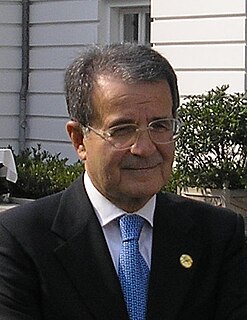
On 24 January 2008 Prime Minister of Italy Romano Prodi lost a vote of confidence in the Senate by a vote of 161 to 156 votes, causing the downfall of his government. Prodi's resignation led President Giorgio Napolitano to request the president of the Senate, Franco Marini, to assess the possibility to form a caretaker government. The other possibility would have been to call for early elections immediately. Marini acknowledged impossibility to form an interim government due to the unavailability of the centre-right parties, and early elections were scheduled for 13 April and 14 April 2008.

Savino Pezzotta is an Italian politician and trade unionist.
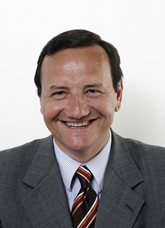
Mario Baccini is an Italian politician, former member of the Union of Christian and Centre Democrats and promoter of the White Rose.

Alliance for Italy was a centrist political party in Italy.

The Apulian regional election of 2010 took place in Apulia, Italy, on 28–29 March 2010.

Future and Freedom, whose full name was Future and Freedom for Italy, was a political party in Italy, comprising both liberal and national elements.
Toward North is a liberal and federalist political association based in Veneto, Italy.

The Populars of Italy Tomorrow was a Christian-democratic political party in Italy whose power base is in Sicily. It's currently affiliated to Forza Italia.
The New Pole for Italy, better known as the Third Pole and less frequently as Pole of the Nation, was a centrist coalition of parties in Italy active from late 2010 to sometime in 2012.
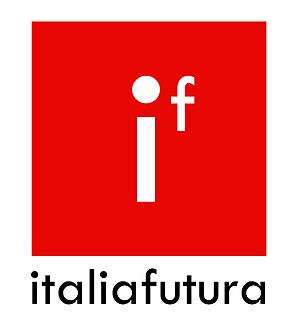
Future Italy was an Italian liberal-centrist think tank, formed in 2009 by Luca Cordero di Montezemolo, chairman of Alitalia and former chairman of Ferrari (1991–2014), FIAT (2004–2010) and Confindustria (2004–2008).

Democratic Centre is a centrist, Christian leftist, social-liberal political party in Italy. Most of its members, including its leaders Bruno Tabacci and Roberto Capelli, are former Christian Democrats.

Civic Choice was a centrist and liberal political party in Italy founded by Mario Monti.
The centre-right coalition is a political alliance of political parties in Italy, active—under several forms and names—since 1994, when Silvio Berlusconi entered politics and formed his Forza Italia party.

New Centre-Right was a centre-right political party in Italy.
More Europe is a liberal, pro-Europeanist, centrist political party in Italy in the centre-left coalition. The party's leader is Emma Bonino, its secretary Benedetto Della Vedova.
